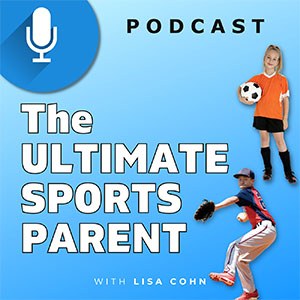The Benefits of Backyard Play

Gary Simmons, author of “Gymbag Wisdom,” and a sports performance specialist who concentrates on teens, has some interesting anecdotes to share about the athletes he works with in high school.
The top players he deals with are not the ones who play on traveling teams. They’re not necessarily the ones who spend all their time playing on more than one formal team year-round, he says.
“No, the top players,” he says, “Are the ones who, in addition to playing on organized teams, often play in the park, the backyard or the local gym with their friends and neighbors–without parents or coaches instructing them.”
And just what is it about playing with friends in informal settings that allows kids to excel?
Kids who’ve spent a lot of time playing with friends are generally quicker on their feet and more coordinated, he says. What they also have—and this is key—higher levels of “exuberance,” says Simmons. As a result, they learn skills more quickly.
The teen athletes he sees who’ve experienced a lot of structured sports and traveling teams are often burnt out, he says. They’re less exuberant and don’t push themselves as hard.
“You can be a 12-year-old state champion tennis player and give 70% in practice,” he says. “The kids who are behind you skill wise–but are moving faster and trying harder–are more likely to excel at their skill.”
These kids who move faster and work harder–those who’ve had experience being competitive without the expectations of adults placed on them–often do well in competition when they’re placed in more structured settings.
In short, fun, unstructured play with friends can boost a young athletes’ mental game and performance.
It’s not always easy, in our world of structured activities, to find a place where kids can play around together….
One option, Simmons says, is to structure some unstructured play. That means parents might gather up the kids in their neighborhood and organize a weekly game of ball. But once the game is organized, the parents should step back and let the kids play.
Here at Kids’ Sports Psychology, we think parents and kids need to strike a delicate balance between structured play and unstructured play. Kids need some instruction to master skills, but they also need the enthusiasm, freedom, and passion required to be great players.
With enthusiasm and passion, which often are based on the fun of unstructured play, kids are more likely to play freely and creatively and take more risks. That means they’ll keep growing, learning and excelling. Kids who are burnt out or who lack enthusiasm for what they’re doing often just go through the motions. They’re less likely to excel.
Listen to half of the interview using the player below:
Related Articles on Kids’ Mental Game:
*Subscribe to The Sports Psychology Podcast on iTunes
*Subscribe to The Sports Psychology Podcast on Spotify
Improve Your Mental Game From Anywhere In The World

We’re certain that, as a parent, you want to help your child develop confidence and discipline in sports and life. And as a sports parent, you’d love for your children to reach their potential in sports. But encouraging your child to strive for greatness without pressuring them can be a challenge.
You can get expert mental coaching with us from anywhere. Meet with us via Zoom, Skype, FaceTime or phone call. With today’s video technology, we are able to connect with athletes and coaches all over the globe.
Call Us Today to Schedule Your Free 15-Minute Session.
Find Out How Your Athlete Can Benefit From One-on-One Mental Coaching!

I agree with your philosophy but it is difficult when you live in neighborhoods that only have a few kids! Our soccer coach also believes that kids should have unstructured time with the soccer ball. He sets up the nets and lets the kids play 3 v 3 games and walks away! It is amazing how creative they have become!